Book of the Day Roundup: January 8-12, 2024
Besaydoo
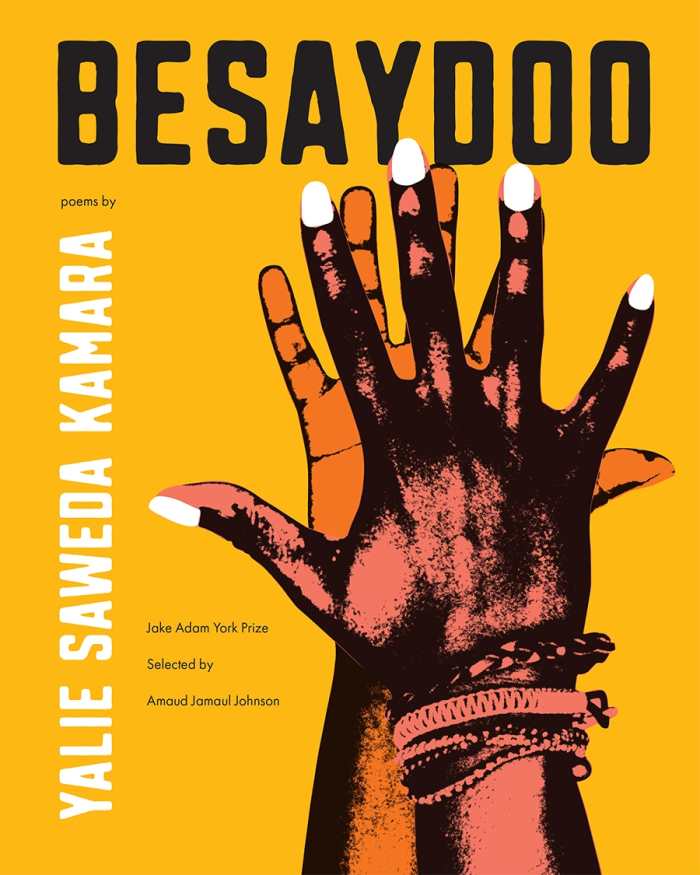
Yalie Saweda Kamara
Milkweed Editions
Softcover $16.00 (96pp)
978-1-63955-031-9
Buy: Local Bookstore (Bookshop), Amazon
Yalie Saweda Kamara’s lucent poetry collection Besaydoo encircles matters of race, heritage, boundaries, and exchanging “worry for hope.”
California-born poet Kamara challenges the description of Oakland as a “killing field.” “Oakland as Home. Home as Myth” peers beyond the city’s reputation for violent crime to note a whiff of cocoa butter lotion in the train station as “warm air kisses bare ankles and calves.” Oakland is also the sweetness of blackberries picked on Thornhill Drive and “Chow Mein and pine trees.”
In “New America,” Kamara longs for “an edited issue of the Oakland Tribune with every splayed corpse cut from its pages.” She’d rather hear the music of Donny Hathaway blaring from “an onyx Cutlass Supreme,” projecting a “Black that is steadfast and opulent.” Yet the pain of loss penetrates “Aunty X’s Dream Door Has,” as Aunty X makes an extra “plate of jollof rice” and hides a spare key for the spirit of her son, Ray. Ray died on her doorstep, leaving behind a gun, many questions, and a “raspberry puddle” of blood.
Away from Oakland, Kamara spends time in Bloomington, Indiana, where she joins a Baptist church and finds aspects of community and personal peace. There’s also the local menace of neo-Nazis and ingrained racism. In “Ulotrichous,” a patronizing pastor describes Kamara’s hair as “woolly” or ulotrichous; he erroneously links her with urban housing projects and notes how “Bloomington must be hard…for people like you.”
The titular “Besaydoo” recalls Oakland teenagers urging each other to “be safe, dude”—or besaydoo when spoken swiftly. Kamara and her mother also make besaydoo their special phrase, spoken face to face or whispered with love during long-distance telephone calls.
Eloquent, proud, and discerning, the poems of Besaydoo preserve the wary splendor of lived experience.
MEG NOLA (December 27, 2023)
Animals
Eight Studies for Experts
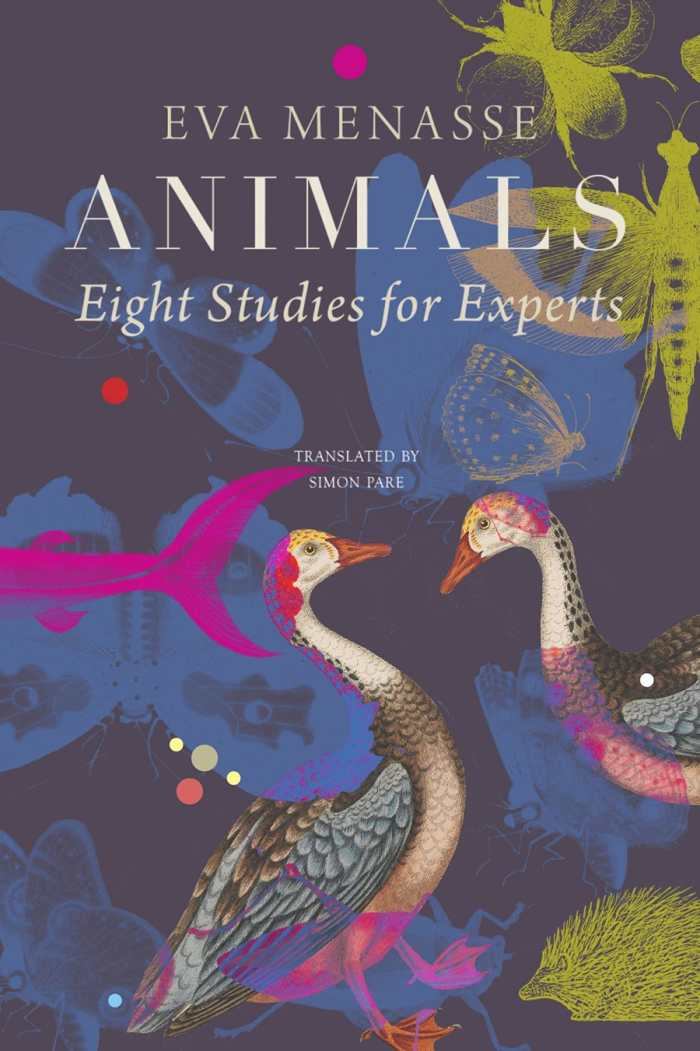
Eva Menasse
Simon Pare, translator
Seagull Books
Hardcover $25.00 (312pp)
978-1-80309-262-1
Buy: Local Bookstore (Bookshop), Amazon
In Eva Menasse’s short story collection Animals, families, parents, and lovers are understood in terms of excerpted zoological descriptions of animal behavior.
“Butterfly, Bee, Crocodile” delves into the private grief of a woman who lost a childhood friend. She attempts to soldier on during a family vacation despite the cantankerousness of her husband’s previous wife. This introspective focus on grief and departure continues in subsequent stories. In “Caterpillars,” a stubborn, elderly husband insists that he knows best and oversees his wife’s care at home, despite her deteriorated memory and against the wishes of his children.
Elsewhere, “Sheep,” which features an anonymous narrator, distinguishes itself by venturing into a dystopian world that has experienced ecological and infrastructural collapse. Its speaker is part of an artificially created colony; they live with a found family of fellow artists, scientists, and thinkers. A quiet hysteria oozes among this collective: the group attempts to discover what they have been gathered together to do, but their efforts seem futile.
Despite their deep intimacies, the stories collected in Animals still avoid insularity. There are inclusions of complex Germanic cultural elements; there’s an awareness of the histories of Nazism and the division of Germany into East and West portions. “Sharks” concerns not just the worries of a mother whose daughter enters a diverse school system—it also illustrates the scapegoating of a boy in the daughter’s class for his Turkish ancestry. Modern-day family constructs overlap with a twisted history of racism, in-groups and out-groups, and ostracization.
Interested in the silenced feelings of isolation, frustration, and anger experienced by individuals entangled in close family relationships, the short stories collected in Animals explore histories that are both personal and historical.
ISABELLA ZHOU (December 27, 2023)
Sanctuary of the Shadow
The Elemental Emergence Series
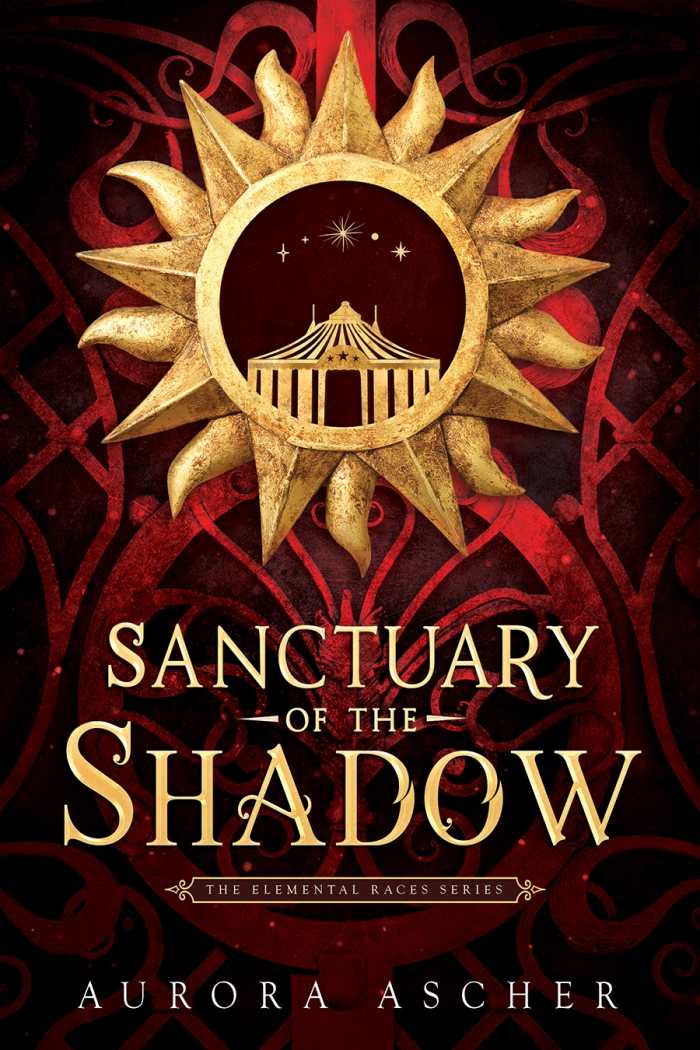
Aurora Ascher
Red Tower Books
Hardcover $29.99 (400pp)
978-1-64937-411-0
Buy: Local Bookstore (Bookshop), Amazon
In Aurora Ascher’s erotic fantasy novel Sanctuary of the Shadow, a girl fights for the right to live life as her authentic self.
A Water Elemental with the ability to see the future and the sole survivor of the genocide against her people, Harrow hides in plain sight as a circus fortune teller. When the circus manager, Salizar, brings a new attraction to the circus—a deadly wraith caught in a cage—Harrow’s world is upended. Attracted to Raith—a beast of a man with fire in his eyes and no memory beyond a few days ago—Harrow helps him to escape, urged on by her Water magic. She believes they are somehow connected.
What begins as a desire to help another living creature evolves into a passionate love affair between two beings with Fire and Water magic, unspooling the dense weave of the Elemental Queens’ lies. Their wars destroyed Harrow’s people, and their tools of death were the wraiths. When Harrow realizes that her new love is the same force that killed her people, decisions await.
Harrow and Raith’s dynamic sparks from their first meeting. The sexual tension between them is palpable, and their unapologetic yielding to their desire for one another is exhilarating. Their relationship is that of equals—though the clash between Raith’s naïve, deadpan reasoning about killing and Harrow’s explanations of why killing is wrong is humorous in its defiance of reason and logic. When they’re forced toward traditional roles, it detracts from the balance of their relationship.
With twists and revelations that come at the right times, helped along by dreams and sensuality, Sanctuary of the Shadow is a passionate fantasy novel in which a girl finds her equal in her opposite.
ERIKA HARLITZ KERN (December 27, 2023)
Good Eats
32 Writers on Eating Ethically
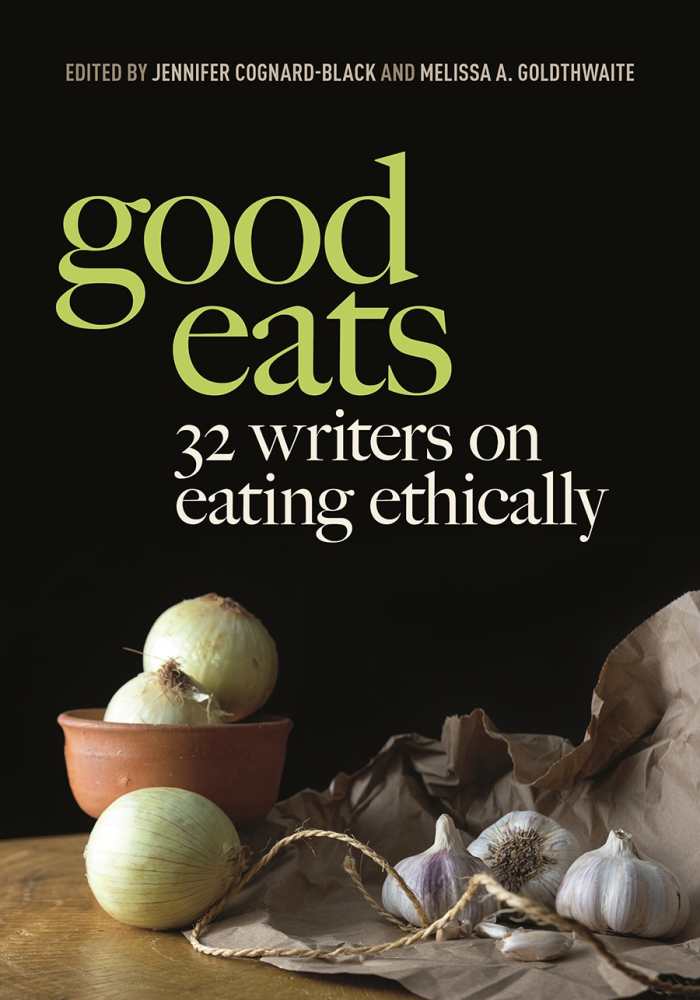
Melissa A. Goldthwaite, editor
Jennifer Cognard-Black, editor
NYU Press
Softcover $32.00 (352pp)
978-1-4798-2179-2
Buy: Local Bookstore (Bookshop), Amazon
The essays collected in Good Eats explore people’s relationships to food through personal stories of love, connection, and emotional literacy.
Food is not just food, the book argues. To discuss food is to dig into the foundations of living, breathing culture and dissect everything along the way: growing, processing, in many cases exploiting, and finally consuming. And to consume food in an ethical manner, in landscapes wrought by inequity and that prioritize profit over well-being, requires concerted individual and communal choices. These ambitious essays cover the complex subject matter surrounding every facet of food, from production to consumption and information.
The topics include biting, unflinching looks at the conditions of both historical and modern foodscapes; the cruelty in slaughterhouses toward workers and animals; and the insidious process of colonization, including rampant bison extermination as a means of eradicating both animals and Indigenous populations who relied on them. Child slavery and exploitation in chocolate production is covered; so is the systemic overfeeding and under-nourishing of populations as a means of cutting costs.
More than their lessons and context, these stories bring unique compassion and understanding to the table. The book imparts a sense of the importance of making changes when one is able and of recognizing that other individuals and communities do not have the same opportunities to eat ethically. Even among the contributors, everyone has a different vision of ethical eating; they appear alongside one another in an effort to collaborate, not disagree. Together, these are lessons to pass down for generations.
The essays of Good Eats argue that, in its purest form, food is about security, with love learned through recipes, people healing from grief through sweet food memories, and reconnecting with the land made possible in the post-genocide US.
NATALIE WOLLENZIEN (December 27, 2023)
The Selkie’s Daughter
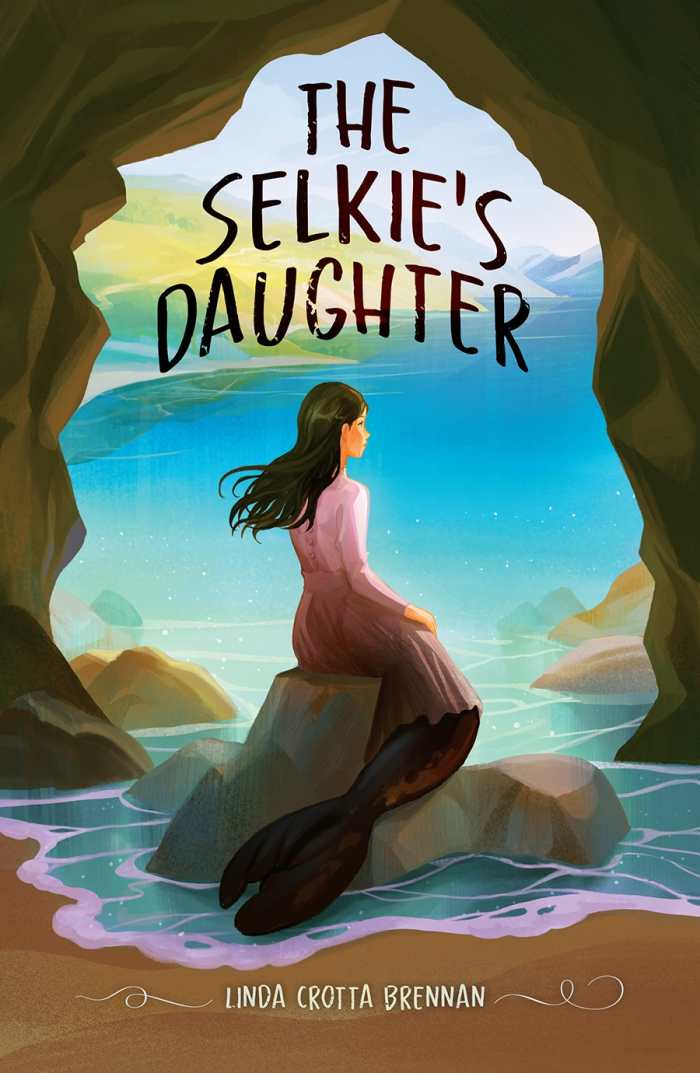
Linda Crotta Brennan
Holiday House
Hardcover $17.99 (208pp)
978-0-8234-5439-6
Buy: Local Bookstore (Bookshop), Amazon
A family is caught between the land and the sea in Linda Crotta Brennan’s coming-of-age novel The Selkie’s Daughter—a story rich in Celtic lore.
Brigit’s father is a fisherman; her selkie mother chose to live her life on land. Suspicion surrounds Brigit’s family nonetheless. The townsfolk don’t like that there’s a supernatural creature among them; they think that Brigit, too, bears the mark of the selkie.
When the fishing industry begins to wane and illness strikes the village, people blame the selkies. And Brigit learns that such struggles are akin to a punishment: people have been killing baby selkies, angering the Great Selkie, who uses his power against the innocent and the guilty alike. Donning the borrowed skin of her selkie cousin, Brigit embraces her heritage, taking to the sea to help both branches of her family.
The book’s clear descriptions channel the elements, focusing on whipping wind, sea spray, crashing waves, and icy ocean depths: “Hurrying through the chest-high, wind-tortured trees, I duck into an inky cave.” Such images complement the story’s rhythmic structure as it flows from section to section. And a poetic Celtic refrain starts each chapter, its lore helping to contextualize the chapter at hand, fleshing out the background lore, history, and nuances of the situations that Brigit faces. Characters’ conversations are more modern, trading between snarky remarks and quick pleasantries and featuring both squabbling children and passing villagers.
In the mythical novel The Selkie’s Daughter, a half-human, half-selkie girl learns to honor all parts of her heritage as a means of being true to herself.
ALEX DAILEY (December 27, 2023)
Barbara Hodge
